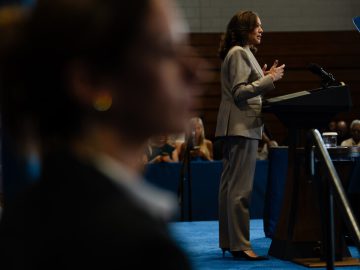A new collective is inviting young people to “co-create” the future of marketing, in a bid to tackle the industry’s persistent lack of diversity and inclusion.
Partnering with creative agency AnalogFolk, the collective is the brainchild of a group of The Marketing Academy Fellows, spearheaded by former Giffgaff CMO-now-CEO Ash Schofield and Martin George, former Waitrose customer director.
The intention is to form an alliance with other industry bodies, brands, media and agencies to connect with under-represented young people to spark meaningful change. The vision is to build a platform where young people and brands come together to “co-create the future of marketing”.
Speaking today on Social Mobility Day (13 June), Schofield believes now is the time to aggregate and amplify the opportunities out there and make them more discoverable for young people, the rationale being the maximum impact can be achieved if the industry works together.
The aim is to co-create a brand with these young people that will give them the stage and platform they need to help shape the new age of marketing.
Elisha Delgardo, AnalogFolk
“The lack of diversity and inclusion in the marketing industry is not only an issue of a lack of opportunity for young people from challenging and underserved backgrounds but, given the role the marketing industry plays in society, it is also an issue of representation,” he explains.
“Without more balanced representation, brands and media risk continuing to create products, services, content and experiences that don’t appropriately serve and reflect the society in which we live.”
Operating under the working title Project Mango, the collective is running a design and naming competition with young people to determine its final name, encouraging diverse representation from its inception.
While the original concept came out of The Marketing Academy, as soon as Schofield, George and their collaborators started to dig into marketing’s lack of representation they found peers across the industry who shared their view.
Elisha Delgardo, senior user interface designer at AnalogFolk and a key member of the project team, explains that being from an underrepresented community she is “deeply passionate” about improving access to the industry for marginalised groups.
“When presented with the chance to spearhead this project’s design and development, I eagerly embraced the opportunity,” she says. “The aim is to co-create a brand with these young people that will give them the stage and platform they need to help shape the new age of marketing.”
Working class marketers face 15.9% pay gap, survey reveals
The industry’s persistent social mobility problem was highlighted earlier this year by Marketing Week’s exclusive 2024 Career & Salary Survey, which revealed a mean marketing socio-economic pay gap for full-time workers of 15.9%.
While this figure is down on the pay gaps reported in 2023 (18.2%) and 2022 (19.1%), marketing’s pay gap is higher than the 12% less professional workers from working-class backgrounds are paid on average, according to Social Mobility Foundation data.
People from working-class backgrounds in a professional occupation in the private sector are, on average, paid £7,575 less per year than those from professional-managerial origins, the Foundation reports.
Based on these calculations, 17 November 2023 was named Class Pay Gap Day, the day people from working-class backgrounds in professional occupations effectively stop being paid.
Separate polling from the Foundation found 89% of young people aged 16 to 18 would be more enthusiastic about working for an employer that prioritised tackling social mobility/socioeconomic diversity.
However, the 2024 Career & Salary Survey suggests brands have a long way to go to appeal to this young cohort. Some 70.1% of the more than 3,000 marketers surveyed come from a middle-class background, compared to just a quarter (24.6%) from working or skilled working class backgrounds.
Political will?
News of the alliance’s mission to tackle marketing’s lack of social economic diversity comes as talk of ‘levelling up’ and the skills agenda is dominating headlines thanks to the looming UK General Election.
In its manifesto released on Tuesday (11 June), the Conservative Party pledged to create 100,000 more apprenticeships in England every year by the end of next Parliament. This will be funded by closing university courses with “excessive” drop-out rates or those that “leave students worse off than had they not gone to university”.
Describing apprenticeships as a key talent pipeline for the UK’s creative industries, the Tories claim to have delivered 5.8 million apprenticeships and created apprenticeship routes into 70% of occupations since 2010, including through degree apprenticeships.
With Labour poised to publish its manifesto later today (13 June), the party has already stated its intention to reposition the existing Apprenticeship Levy as a ‘Growth and Skills Levy’. The party argues change is needed to address the “failed” system, citing figures which show £3.5bn in Apprenticeship Levy funding has gone unspent since its inception in 2017.
Without more balanced representation, brands and media risk continuing to create products, services, content and experiences that don’t appropriately serve and reflect the society in which we live.
Ash Schofield, Giffgaff
Under Labour’s proposals, companies would be able to use up to 50% of their levy contributions on non-apprenticeship training for existing staff, with the other 50% reserved for apprenticeships.
The Liberal Democrats also intend to replace the “broken” Apprenticeship Levy with a “broader and more flexible” skills and training levy. The party says it will boost the uptake of apprenticeships by guaranteeing they are paid at least the National Minimum Wage.
In a bid to solve skills gaps, the Lib Dems also plan to expand higher vocational training, including through higher apprenticeships.
It remains to be seen whether any incoming government will address the level of complexity and bureaucracy required to access Apprenticeship Levy funding, which Marketing Week data suggests could be putting brands off engaging with the process.
According to the 2024 Career & Salary Survey, a fifth (20.1%) of marketers surveyed say their business doesn’t operate a marketing apprenticeship because it requires too much time and resource.
A further 14.4% say their business does not currently see the value in apprenticeships, while 5.7% say they can’t get buy-in at the highest level for such an initiative and 5.5% argue it is too complicated to develop a programme.
Email inclusion@themarketingacademy.org to join the alliance or find out more
 Marketing Week’s Opening Up campaign is pushing for the democratisation of marketing careers. Read all the articles from the series so far here.
Marketing Week’s Opening Up campaign is pushing for the democratisation of marketing careers. Read all the articles from the series so far here.





